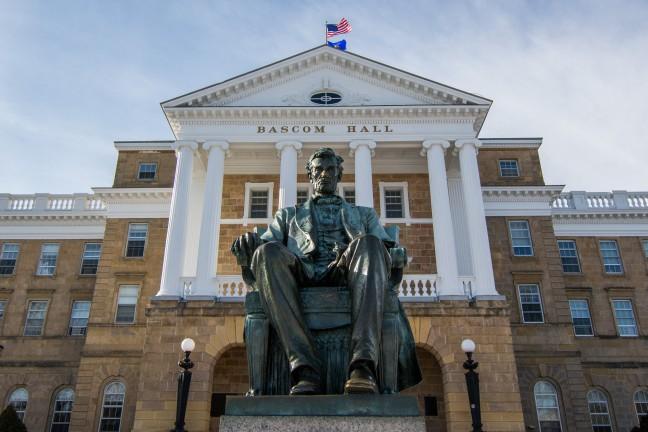University of Wisconsin Dean of Students Lori Berquam and Chief Diversity Officer Patrick Sims hosted a student forum Wednesday to discuss the results and policy recommendations of the recent Campus Climate Survey.
Berquam said the forum was held for students to learn more about the results found in last year’s survey, discuss them with student peers and answer questions from university administration representatives.
Berquam and Sims began by discussing the results of the survey, which were released in Nov. Broadly, the survey results found LGBTQ+ students, disabled students and students of color experienced a less positive campus climate than majority students.
The results of the survey confirmed what the university has long known to be true through stories students have expressed interpersonally and anecdotally, and provided the university with enough data to formulate recommendations and policies to remedy the disparities in experiences on campus, Sims said.
“We had several anecdotal stories, but we never really had an opportunity to establish a baseline with considerable evidence to make some more informed decisions going forward,” Sims said.
In the November report, the Campus Climate Survey Task Force, chaired by Berquam and Sims, posited seven broad recommendations to improve the campus climate and remedy disparities.
These recommendations included:
- Ensuring an inclusive learning environment
- Increasing campus safety
- Improving institutional responses to incidents of hate and bias
- Increasing faculty diversity
- Promoting diversity and inclusivity
- Increasing capacity of students and faculty to respond to incidents of hostile behavior
- Promoting “dialogue across differences”
Students at the forum asked several questions about the these recommendations.
UW student Riley Tsang asked the university administrators what small, micro actions UW can take to alleviate the immediate incidents of hate and bias minority students currently face on campus.
Sims said the university can’t “legislate minds and hearts,” and said some changes are difficult for the university to impart any real, tangible change through policy changes.
Much of the discussion, however, was centered on a new University Housing dining policy which mandates the purchase of a $1,400 meal plan for all students living in university residence halls.
Jacqueline Beaulieu, campaign director of the Associated Students of Madison Shared Governance Committee, said the policy could potentially harm housing and food insecure students, which the climate report found to experience a less positive campus climate in certain contexts.
“The campus climate survey showed that there are housing and food insecure students on this campus, it did show that working class students are a lot more likely than their non-working class student peers to consider leaving this university, and the top two reasons why are for financial reasons and the climate,” Beaulieu said.
In a similar vein of discussion, UW student Rena Newman asked the university representatives why data regarding the campus experience of working class students was not included in the “general findings” section of the report.
New university dining policy faces criticism from students, alumni
Margaret Harrigan, a policy researcher with the university, said the findings that working class students experienced a less positive campus climate were not generally found to be as consistent as for the groups focused on in the report, such as students of color, LGBTQ+ students and disabled students.
“We saw a really strong pattern for the four groups that we did focus on, and it was a weaker pattern for the working class students,” Harrigan said.
The university will hold similar forums next semester, and said another campus climate survey will be conducted within four to five years.


